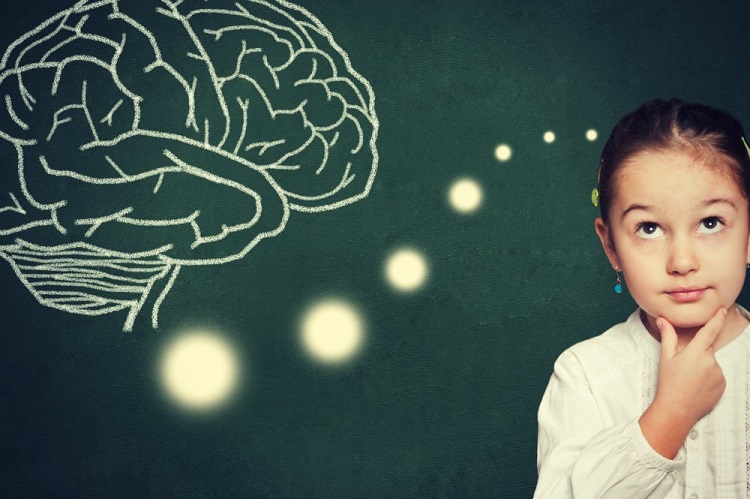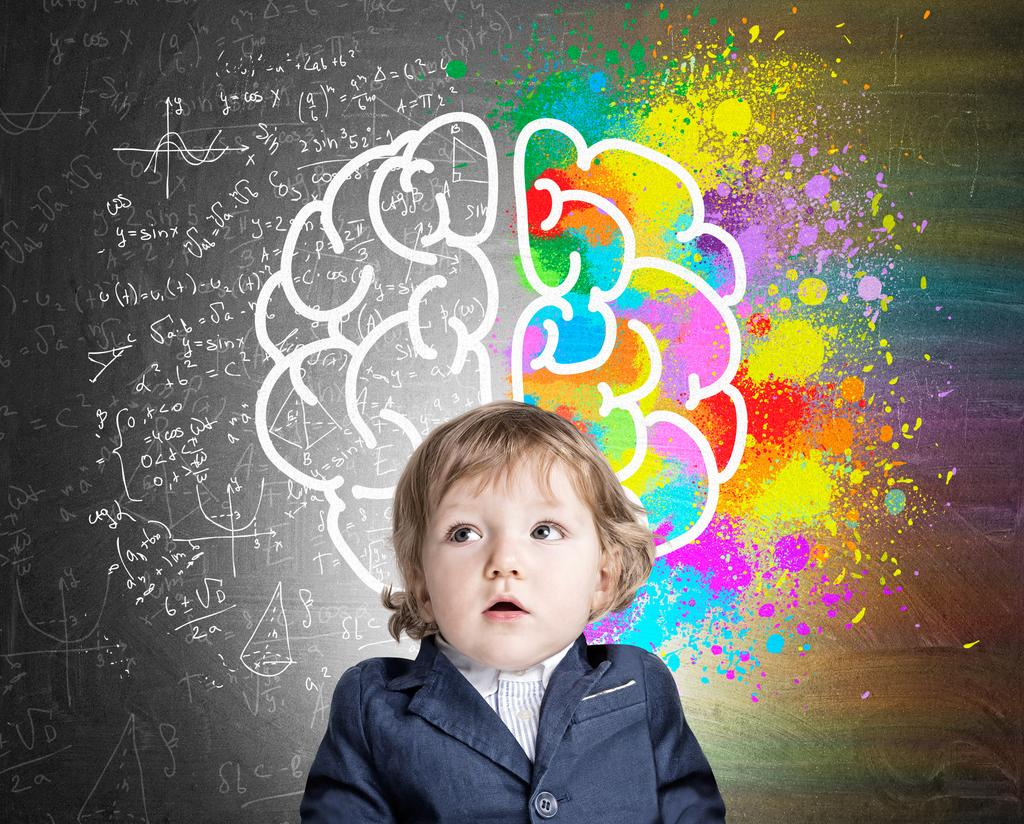When it comes to kids brain development, there are certain factors that need to be taken into consideration when thinking about the future. It’s important to understand exactly what goes on in a child’s mind before they even learn how to speak.
Kids brains develop in stages over a period of years. During these different developmental periods, the way that a kid thinks changes.
There are five main phases of brain development, including pre-verbal, speech, language, motor skills, and executive function (which includes impulse control). Each phase lasts for several months until the next stage starts.
During this process, babies will gain more and more abilities. At the same time, they will also grow in size. For example, an infant who weighs 10 pounds has a total brain mass of approximately 300 grams. By age 3 to 4, this weight is doubled to around 600 grams. And by age 5, the average baby weighs 1 kilogram.
What Is Brain Development?
Your baby’s brain develops rapidly while he’s still inside your womb. During this time, the tiny organ begins to grow into a complex structure. This process continues until the child reaches his first birthday.
You might be wondering how your baby’s brain grows so quickly. There are several factors that contribute to the growth of the infant’s brain. For example, the size of your uterus plays an important role in determining the amount of space available for your unborn baby to develop. The more room you have, the more likely it is that your fetus will receive the oxygen and nutrients needed to survive.
As well, the position of the mother’s body also affects the way her baby’s head moves around. If you’re lying down, then your baby is able to move freely and easily. However, if you are standing or sitting, you’ll limit the movement that your baby has.
Finally, hormones play a big part in the growth of your baby’s brain. When these chemicals reach certain levels, they trigger changes in the cells. As a result, the baby will start to gain weight faster. In addition, the number of nerve endings in your baby’s brain increases.
How Does the Brain Develop?
Your brain is constantly changing throughout your life. You can actually grow new neurons in adulthood. This means that you could potentially change the way that your brain functions.
However, there are certain factors that affect how quickly the brain develops. If you want to learn more, then you should read the article below. Here are some of the most important facts about the development of the human brain.
First, babies have a much higher rate of growth than adults. As a result, their brains continue to develop until they reach the age of two. After this point, the brain begins to slow down.
Second, the size of your brain increases by approximately 100 grams per year. However, it doesn’t increase in size at the same pace in all parts of your head. The frontal lobes and the cerebellum are the fastest growing areas.
Third, your brain continues to grow after you die. In fact, the part of the brain that controls your senses continues to develop even when you’re dead.
The final thing to know about brain development is that there are some things that can cause damage to your brain. For example, if you take a lot of drugs while pregnant, then this may lead to problems with your baby’s brain.
How to Promote Brain Development
In today’s world, many parents want to know how they can help their children to become smarter. One of the best ways that you can do this is by encouraging your child to learn new things. If you’re interested in learning more about the topic, then you should read the article below.
One of the most important things that you can do for a healthy mind is to encourage your kids to develop their brains. This means that you need to expose them to as much information and knowledge as possible. The better you are at doing this, the more intelligent they will be.
If you want to make sure that you’re giving your child the right type of stimulation, then you should start reading books and magazines to your baby. You could also take your child with you when you go shopping.
Another great way that you can help your child to grow up smart is to spend time playing games together. For example, you could play chess or checkers.
You may have heard the expression “A mind is a terrible thing to waste.”
This is because there are so many things that people can do with their minds. So, if you want your child to become smarter, then you should work hard to get him or her into school.
The Brain Development Stages
There is a lot of information that you can read online about the human brain. However, many people don’t know exactly how long each stage lasts. Here’s everything you need to know.
1. Pre-birth:
During this period, your baby is growing inside of you. During this time, the most important thing for the baby to do is to develop its nervous system. This means that it needs to grow a large number of nerve cells.
2. Birth to 3 Months:
Your baby will be learning more than ever before at this point. He or she will learn to recognize faces, talk, and use his hands. Your child may also start to smile and cry.
3. 4 to 6 months:
At this point, your little one will have a good understanding of colors, shapes, numbers, and letters. If you’re worried that your baby isn’t talking yet, then you should probably take him or her to the doctor. There are lots of reasons why babies might not speak until they reach this age.
4. 7 to 9 months:
This is when children usually start walking. They will also begin to understand their own names and other people’s. At this point, it’s a great idea for parents and grandparents to spend some quality time with your young child.
How to Help Your Child’s Brain Develop
Your baby’s brain is growing at an amazing rate right now. This means that you need to be aware of how important it is to give your little one the best possible start in life. If you want to make sure that your child’s brain develops well, you should read this article.
You might wonder why you have to worry so much about the development of a newborn’s brain. After all, you don’t know what kind of personality he or she will develop. However, there are several reasons why it’s very important for you to pay attention to the way that your baby is developing his or her brain.
One of the first things that you need to understand is that the more active your child’s brain is, the better off he or she will be. This is because the more active your child’s brain is, the faster it can learn new skills. It also helps him or her to improve their memory and reasoning abilities.
Another reason for you to focus on your baby’s brain development is that it will help to ensure that they are able to do well in school. In fact, research has shown that children who are involved in activities such as reading, writing, and math tend to perform better than others when they reach adulthood.
Early Childhood Brain Development Facts
Did you know a baby is born with billions of neurons? Even more incredible are the trillions of neural connections that link those neurons! Those connections, called synapses, are the foundation on which the rest of the brain will develop. They are formed every time a child experiences something.
Babies are so small and fragile when they enter the world, yet miraculous things are taking place right below the surface of their soft, little heads.
A baby’s brain contains 100 billion neurons when they are born. No wonder moms are tired during pregnancy, their bodies are making all those! While some areas of the brain, like the cerebellum and the prefrontal cortex continue making neurons after birth, what really matters are the connections that carry the information children have gathered up to the nerve cells in the different areas of the brain. For example, when a parent picks up their baby a connection is formed.
When a baby enters the world, they have 50 trillion neural connections, also known as synapses. By the time they reach adulthood they’ll have around 500 trillion.
As a child grows, their brains are rapidly developing new neural connections. We’re not talking about 100 new synapses a day, either.
Research shows that they’ll have roughly 15,000 neural connections per neuron by the time they are age two or three. They started out with approximately 2,500 per neuron. In total, a toddler’s busy brain has about 1,000 trillion synapses.
About those synapses – the neural connections are like interstates carrying the knowledge to and from different areas of the brain. Over time, the brain sheds the neural connections that it isn’t using.
Neuroscientists call that synaptic pruning.
Depending on their experience, the connections formed and kept will determine if they’re going to be intelligent, loving, kind, and empathetic, as opposed to ignorant, mean, and selfish. That is why parenting is so critical for kids’ brain development & focus.
The relationships kids have and their experiences during the first 3 years of life will have a profound impact on the rest. Even if a child doesn’t specifically remember this part of their life, their brain’s connections do. All this neuron generation, synapse pruning and removal requires energy and nutrients. That is where optimal nutrition comes in. Helping kids get the proper nutrition can be difficult when they are picky eaters and so modern food companies have made herculean efforts to make food entertaining and sweet, which is not always ideal for youngsters.
The Standard American Diet has been shown to fall short when it comes to providing kids with the proper brain nutrition leading many parents to look to supplements to bridge the gap.

Parent/Child Relationship Impact on Brain Development
Imagine a person planted an acorn and grew an oak sapling. The young tree is growing just fine but then the person starts neglecting it. Over the next few years, the tree is given minimal attention and care. When it grows into a young tree, it’s not very attractive. Its leaves are thin and its trunk is scrawny.
Next door to that person’s house, a neighbor also planted an acorn. They watered it every day, fed it plant food, and nurtured it with love and attention. Now it’s a beautiful tree with vibrant, full leaves. The trunk is sturdy and it’s providing plenty of shade for its caregiver.
Now, imagine those trees are humans.
A child who is well-loved, cared for, and fed a rich, balanced diet, has a far better chance of growing into a well-adjusted, successful adult, compared to one who is not
As mentioned, a child’s neural connections are rapidly developing. If a parent is kind and happy for the most part, their toddler is growing “kind-and-happy” connections. As the child ages, those synapses get stronger and healthier. Those connections will follow them to adulthood and they’ll know how to build strong, healthy relationships.
The flip side can create children who will have a much harder time fostering healthy relationships in adulthood, or maintaining focus. They could also be less likely to be successful if their parents failed to create a healthy learning environment.

